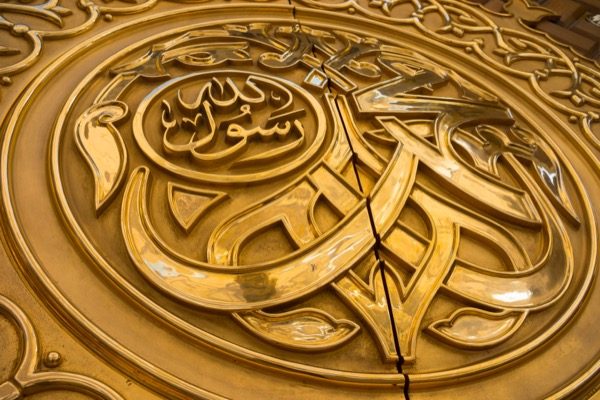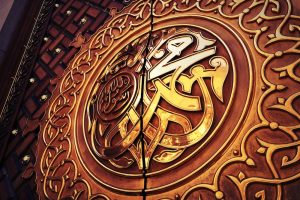
God loved the recitation of the Holy Qur’an by the Holy Prophet Muhammad (sa) because it was full of heartfelt emotions of love and pathos. His recitation used to be so elegant that it has been described in the Holy Qur’an as,
اَلَّذِیۡنَ اٰتَیۡنٰھُمُ الۡکِتٰبَ یَتۡلُوۡنَہٗ حَقَّ تِلَاوَتِہٖ ؕ اُولٰٓئِکَ یُؤۡمِنُوۡنَ بِہٖ
‘They to whom We have given the book, follow it as it ought to be followed; it is these that believe therein.’[1]
The Holy Prophet Muhammad (sa) used to recite it in such a beautiful tone and in a clear distinct manner that the full obligation of recitation was discharged. Someone asked Hazrat Anas (ra) about the recitation of the Holy Qur’an by the Holy Prophet Muhammad (sa). He replied that the Holy Prophet (sa) used to recite for a long period of time. Hazrat Anas (ra) recited ‘Bismillah [in the name of Allah]’ as the Holy Prophet Muhammad (sa) used to recite it. He recited Ar-Rahman [the Gracious] and Ar-Rahim [the Merciful] in a drawn out manner.
Hazrat Abu Hurairah (ra) relates that the Holy Prophet Muhammad (sa) told him that God does not listen to anything more intently as He does to the recitation of the Holy Qur’an being recited by him when he recites it in a melodious tune.
Hazrat Umm-e-Salamah (ra) relates the Holy Prophet Muhammad (sa) used to pause at the end of the verses. He would stop at every verse of Al-Fatihah, at ‘Rabb al-‘Alamin [Lord of all the worlds]’ ‘Ar-Rahman’ and ‘Ar-Rahim’.
The Holy Prophet Muhammad (sa) used to pronounce every word clearly and separately while reciting the Holy Qur’an. His voice would ebb and flow with emotions. Someone asked the Holy Prophet Muhammad (sa) about the best form of recitation. The Holy Prophet (sa) replied, that a recitation which shows fear of Allah. His own citation reflected this emotion of fear.
Muhammad (sa) – The Perfect Man (Qadian, India: Nazarat Isha’at, 2015), 126-127.
[1] The Holy Qur’an, 2:122.




Add Comment